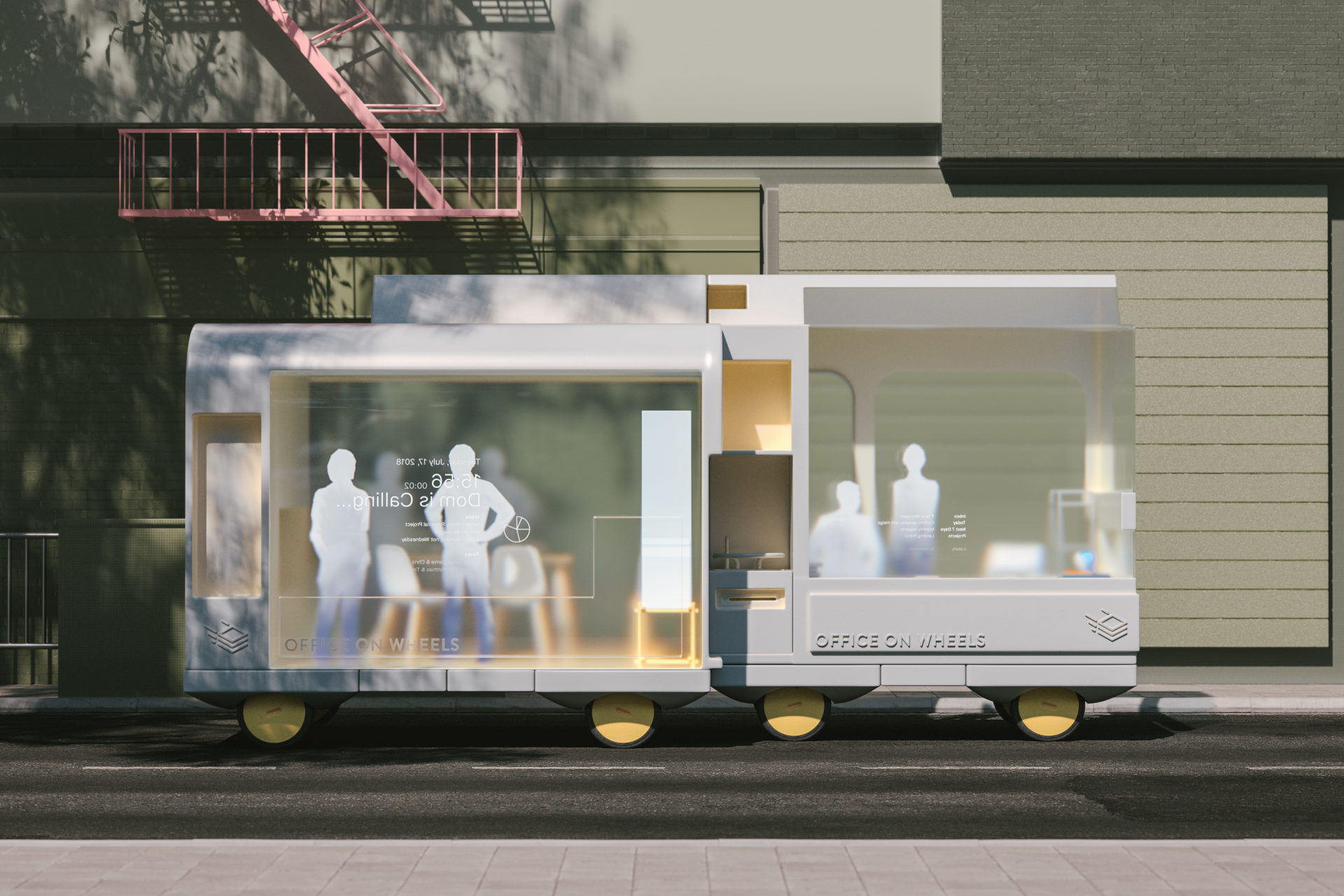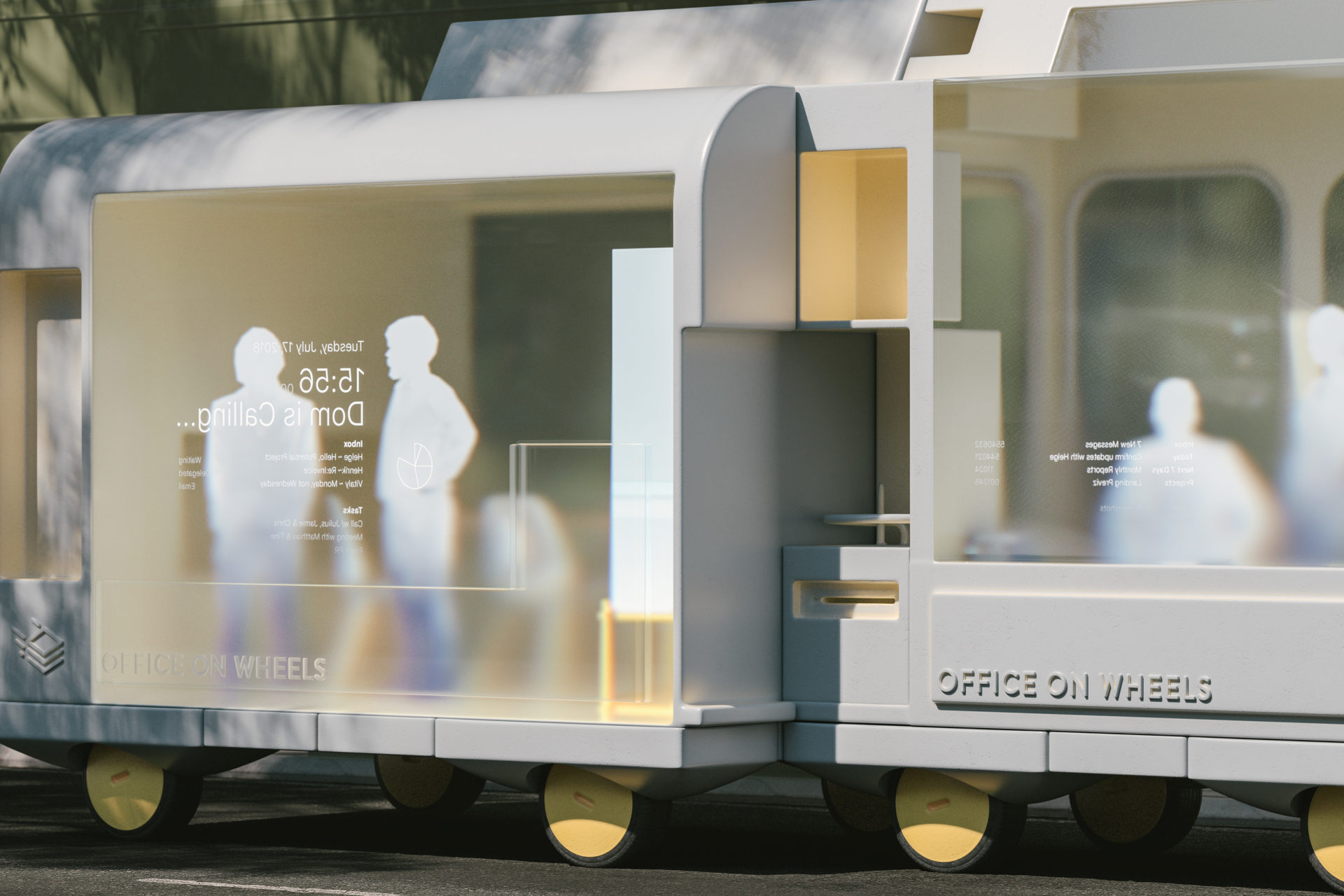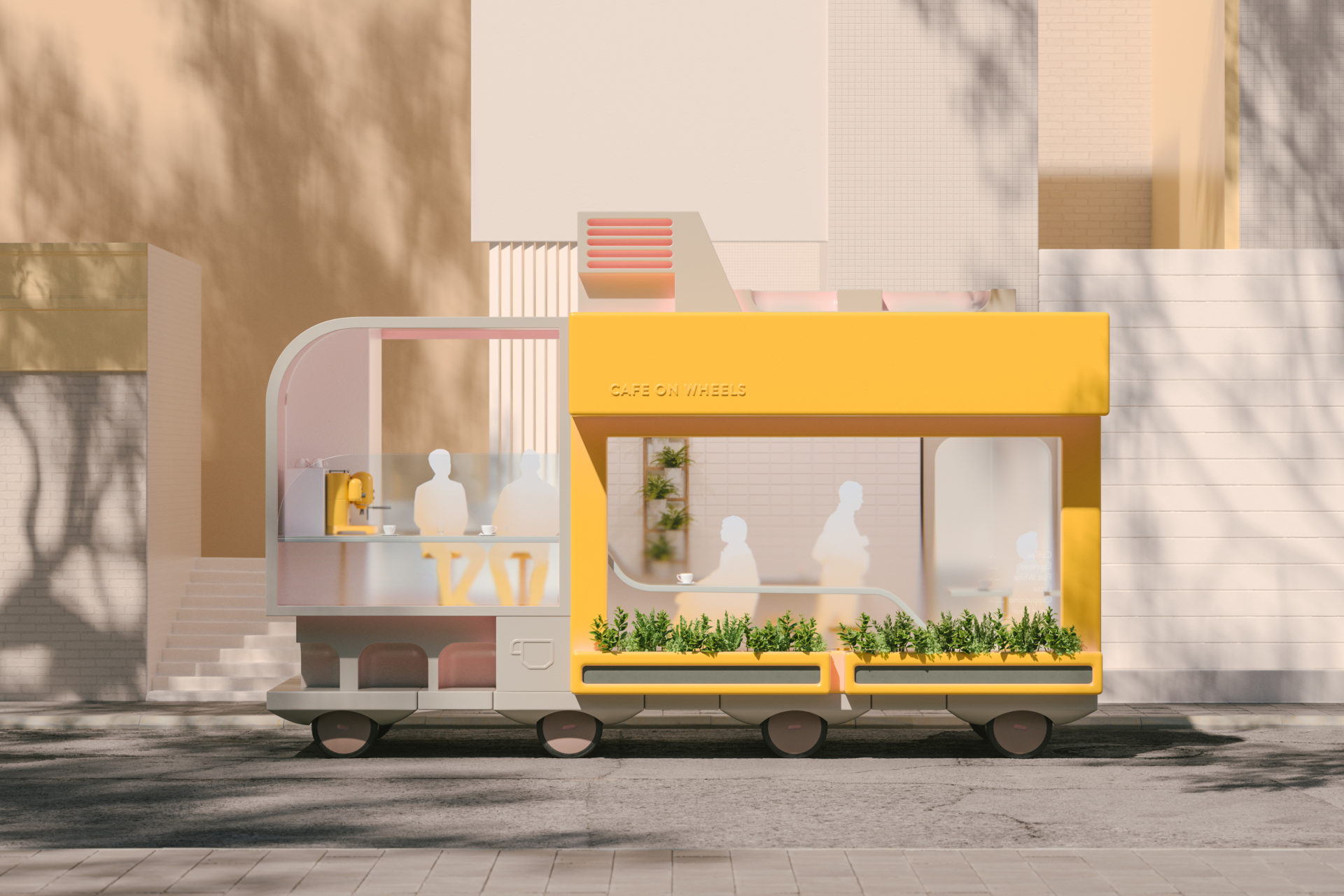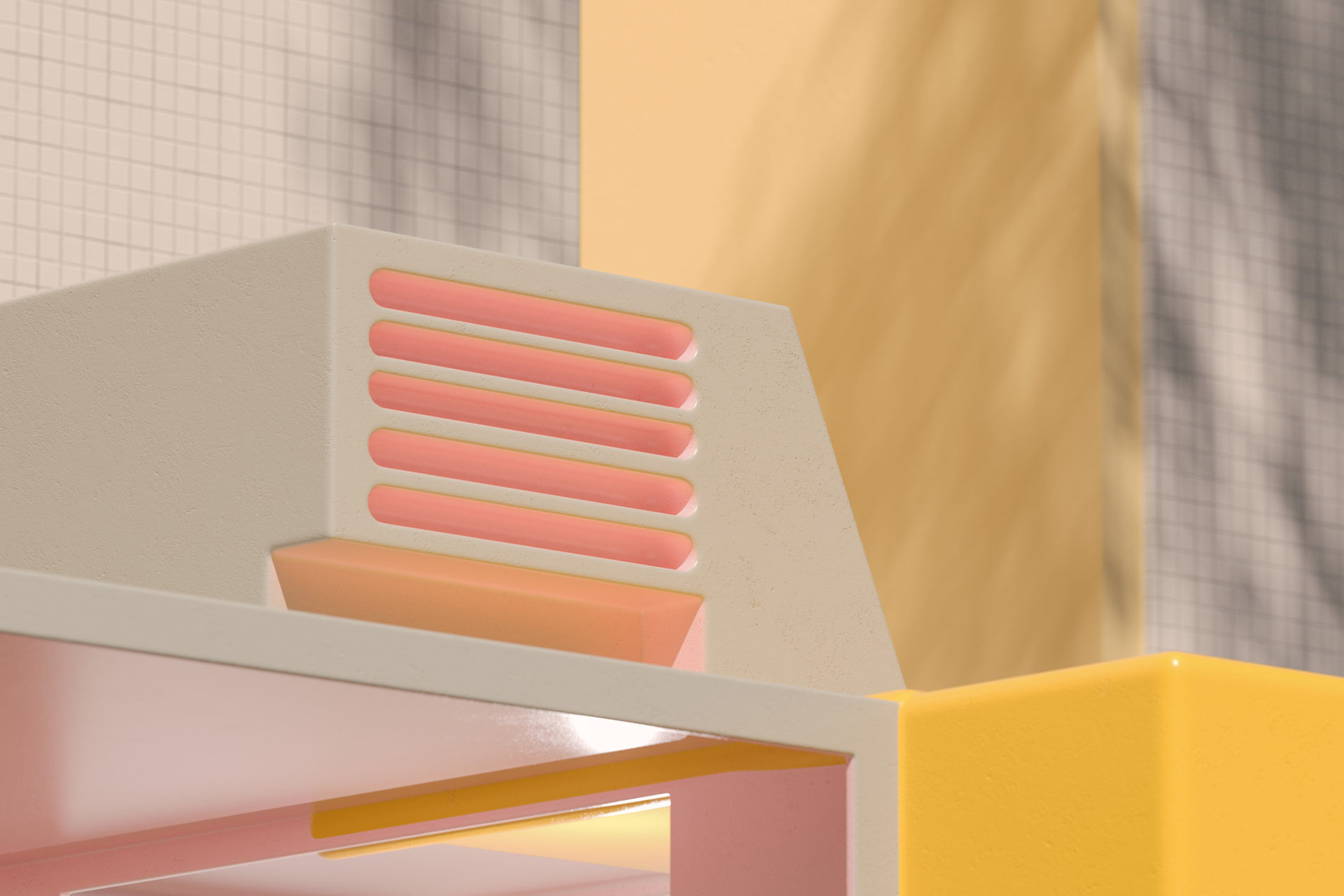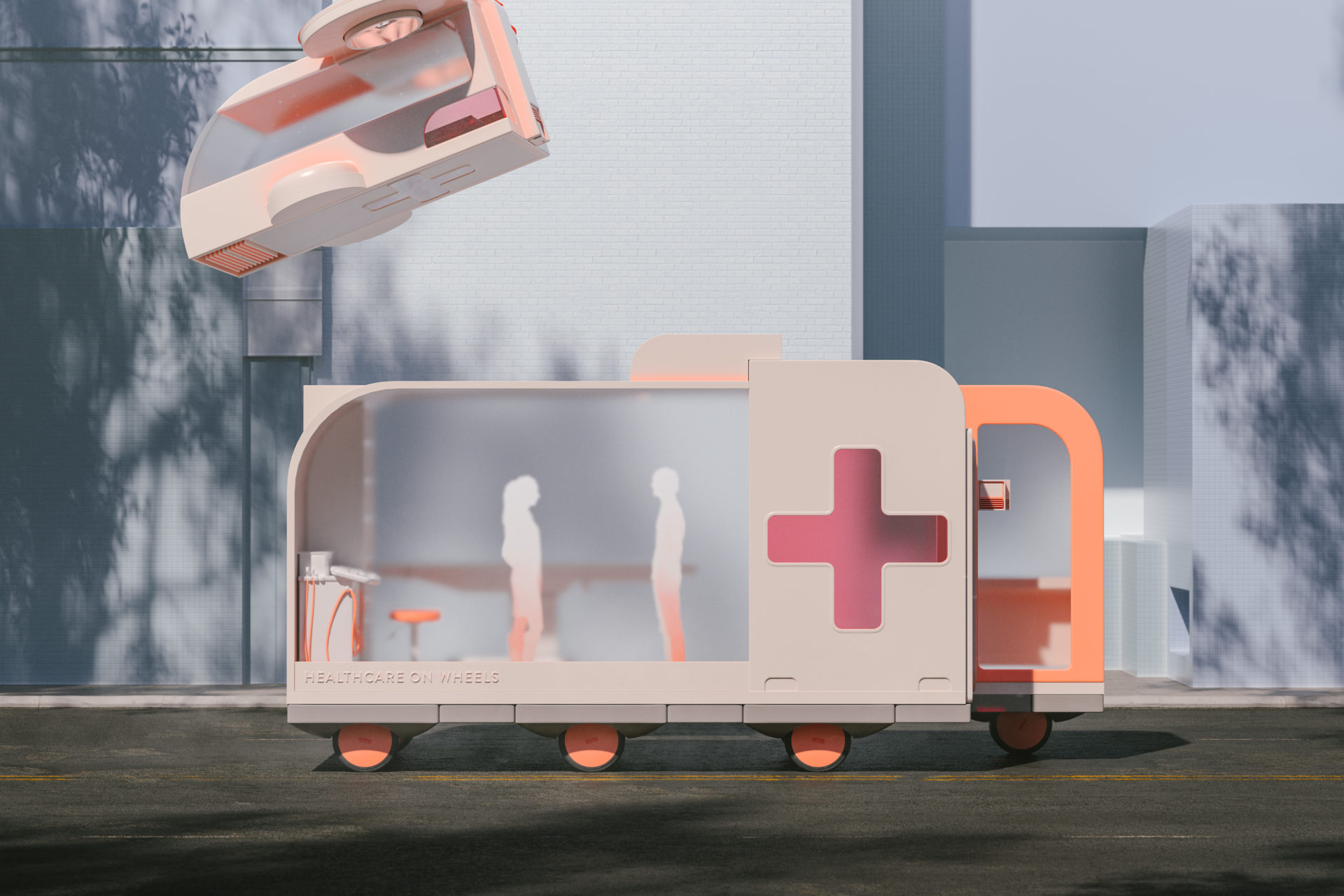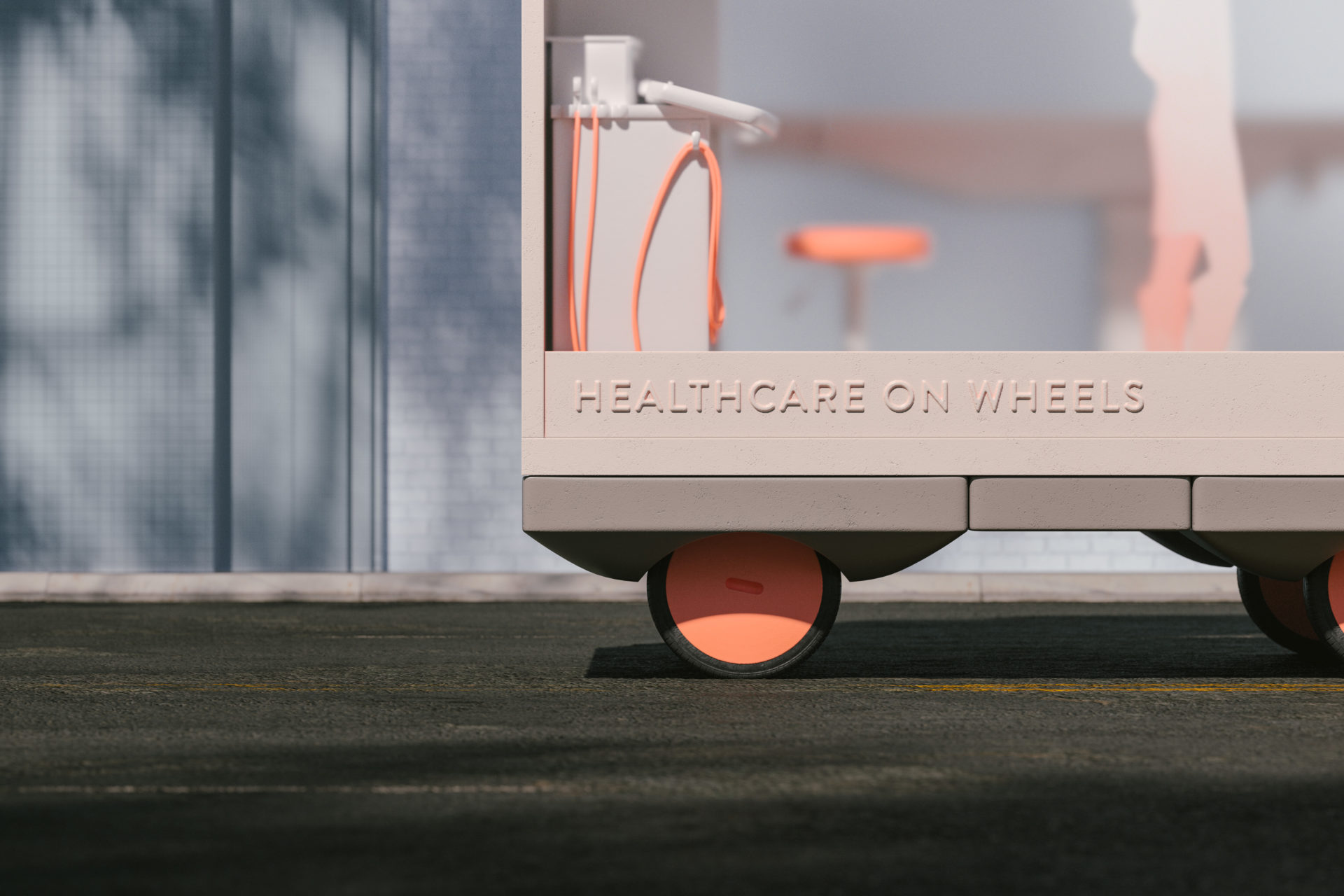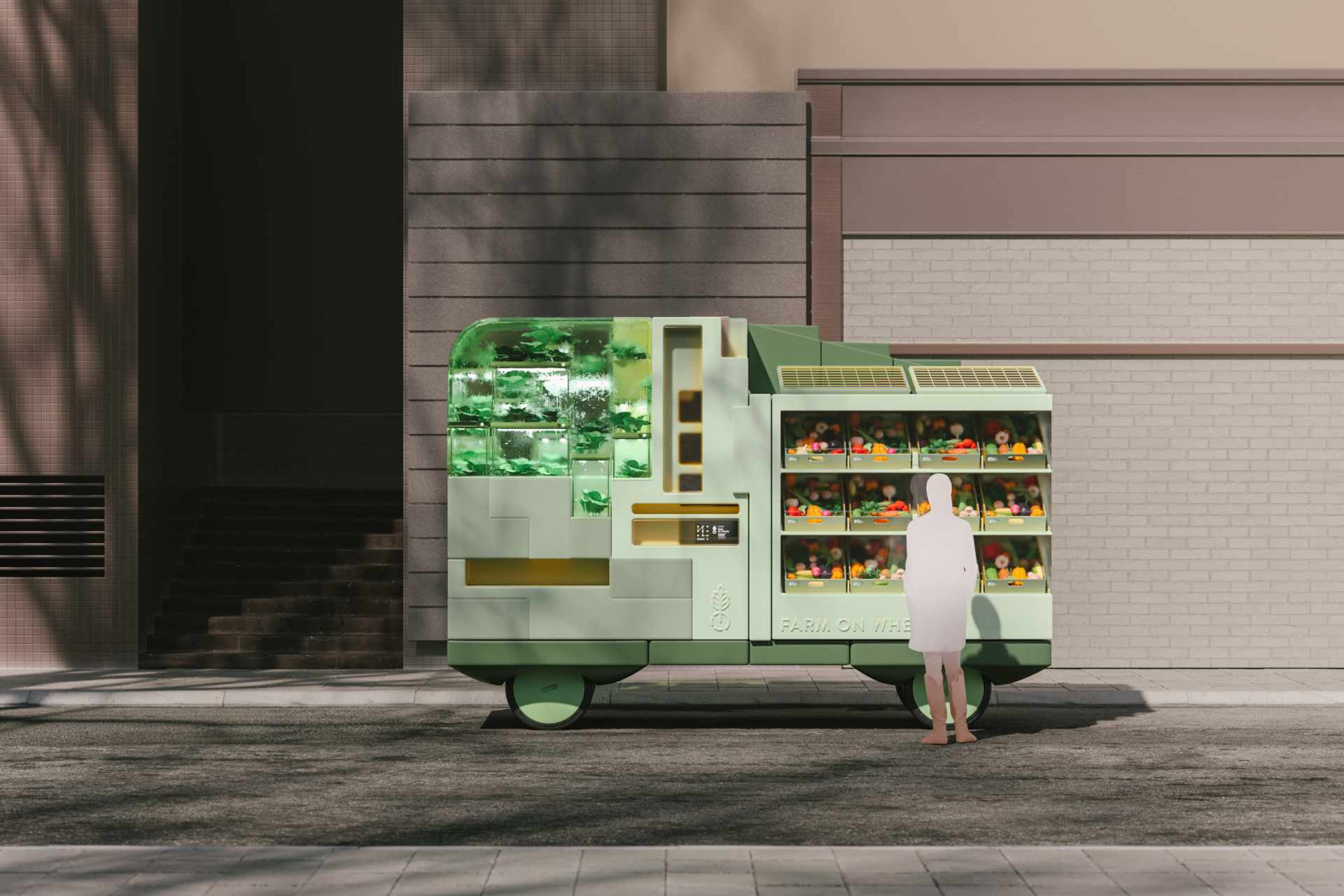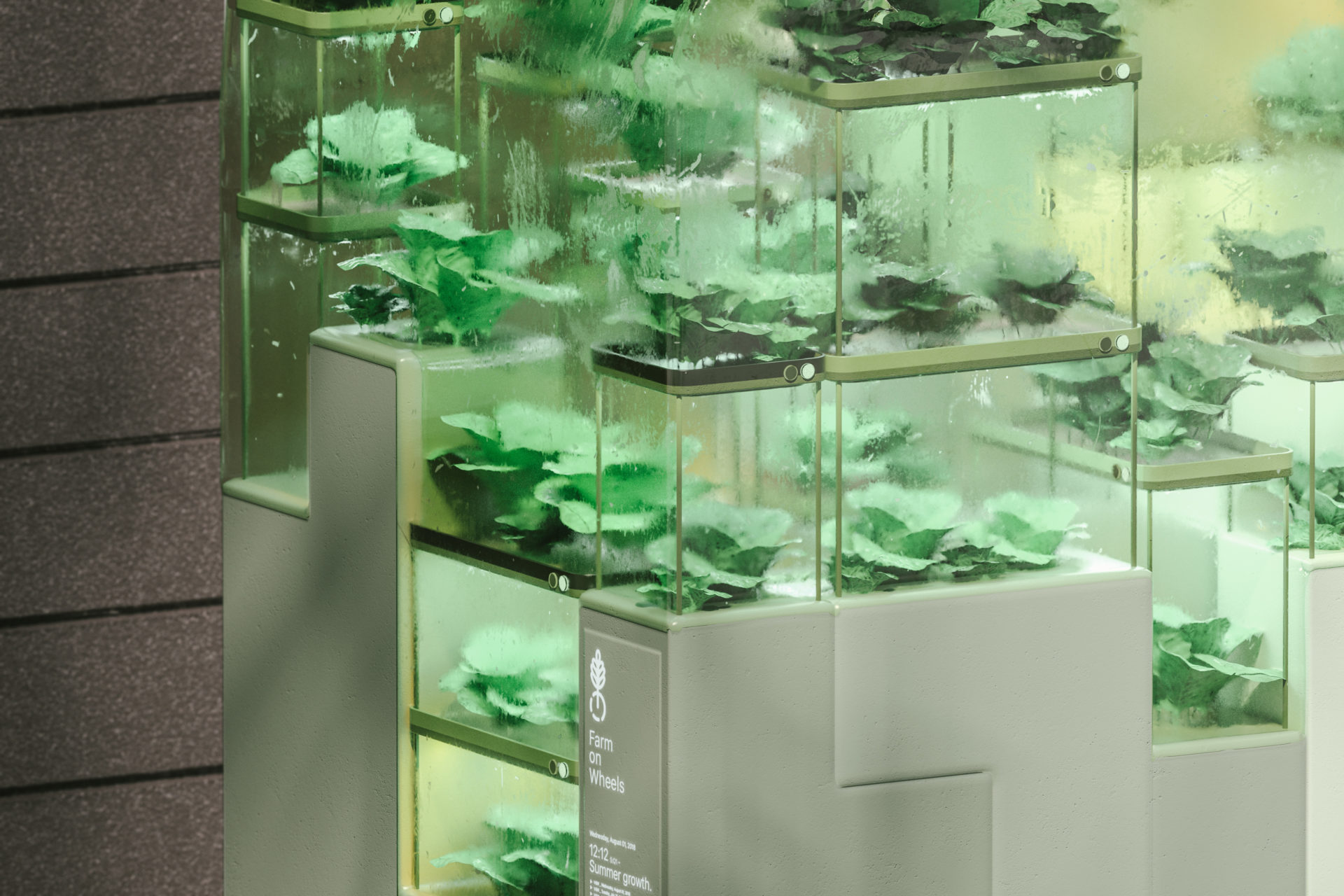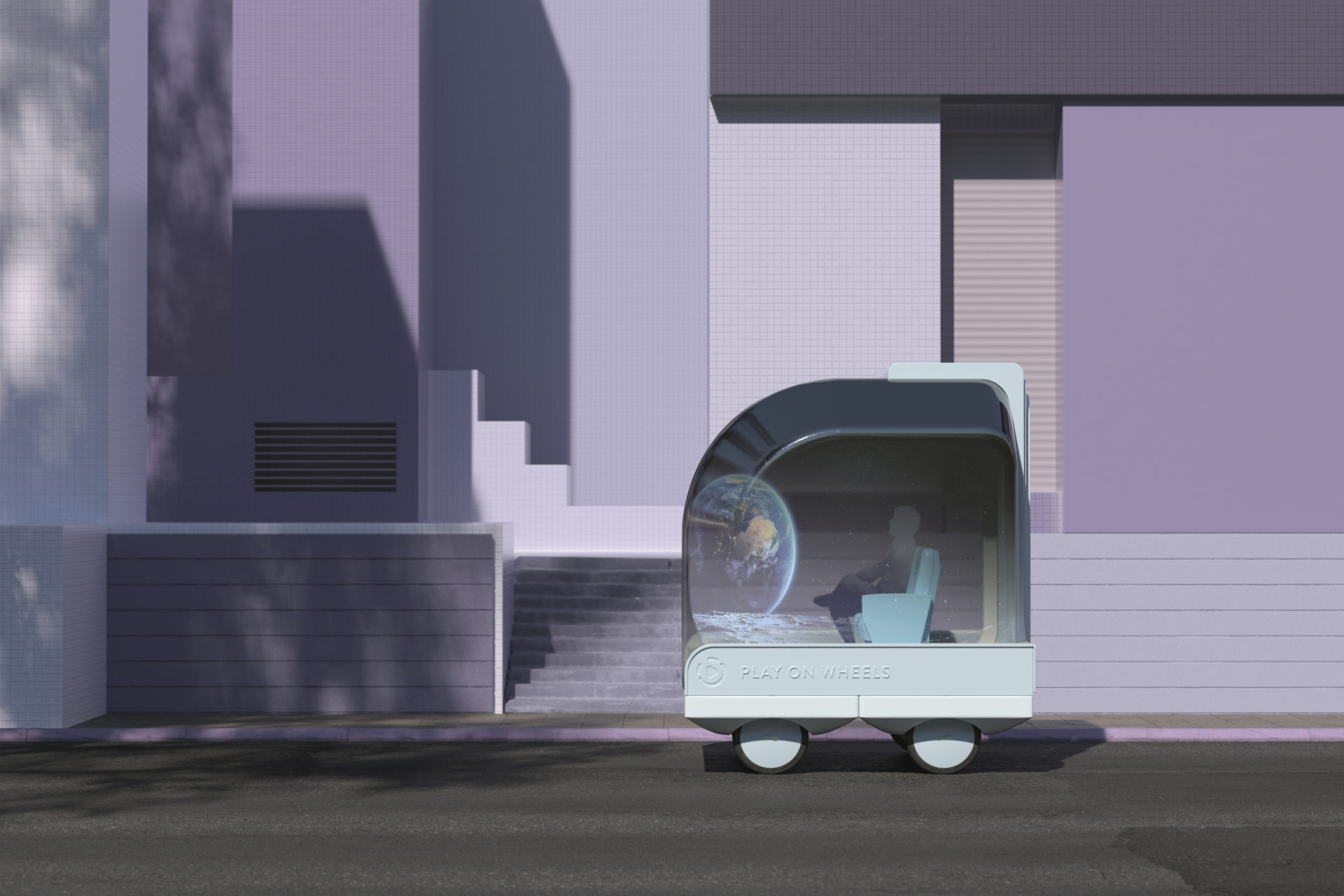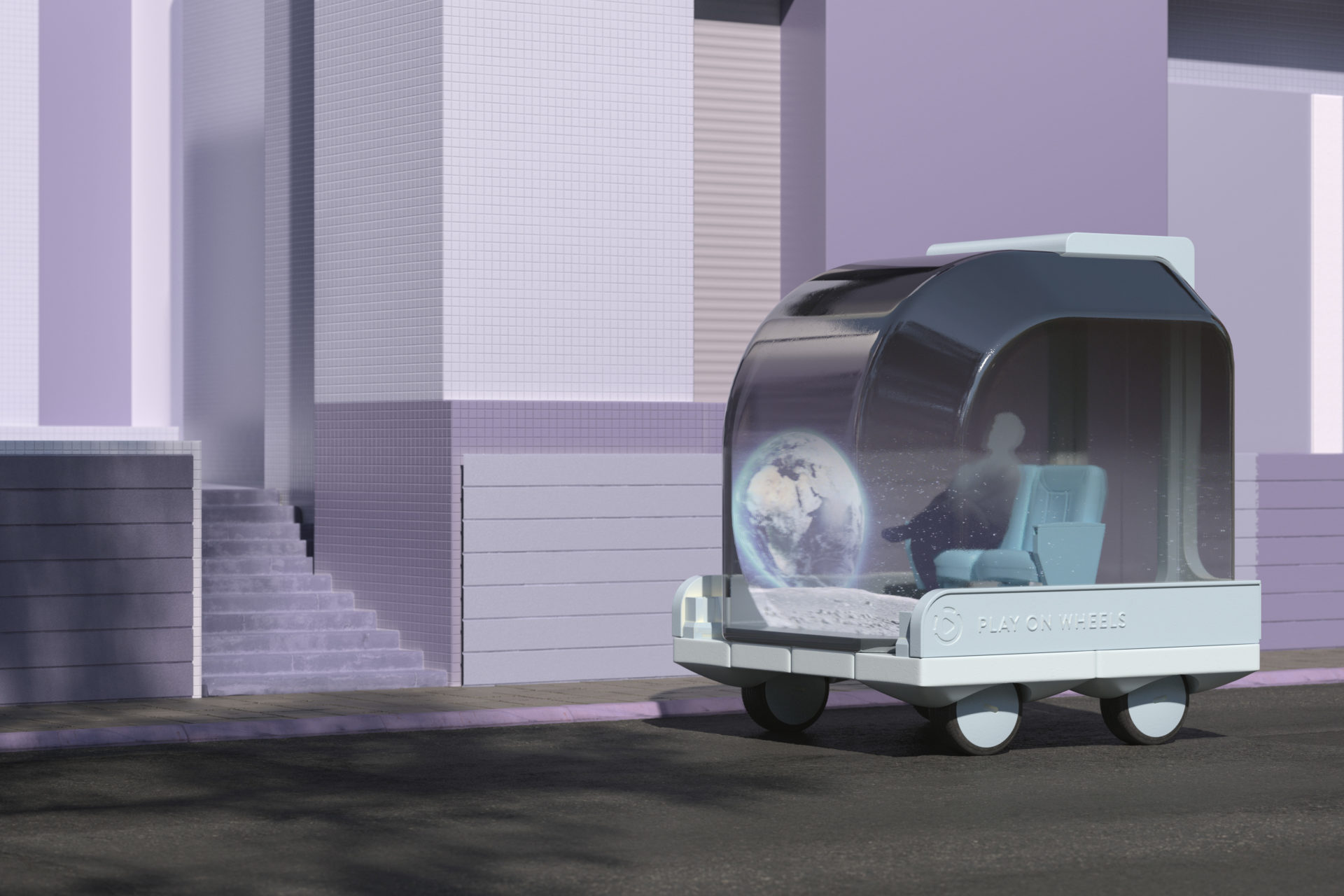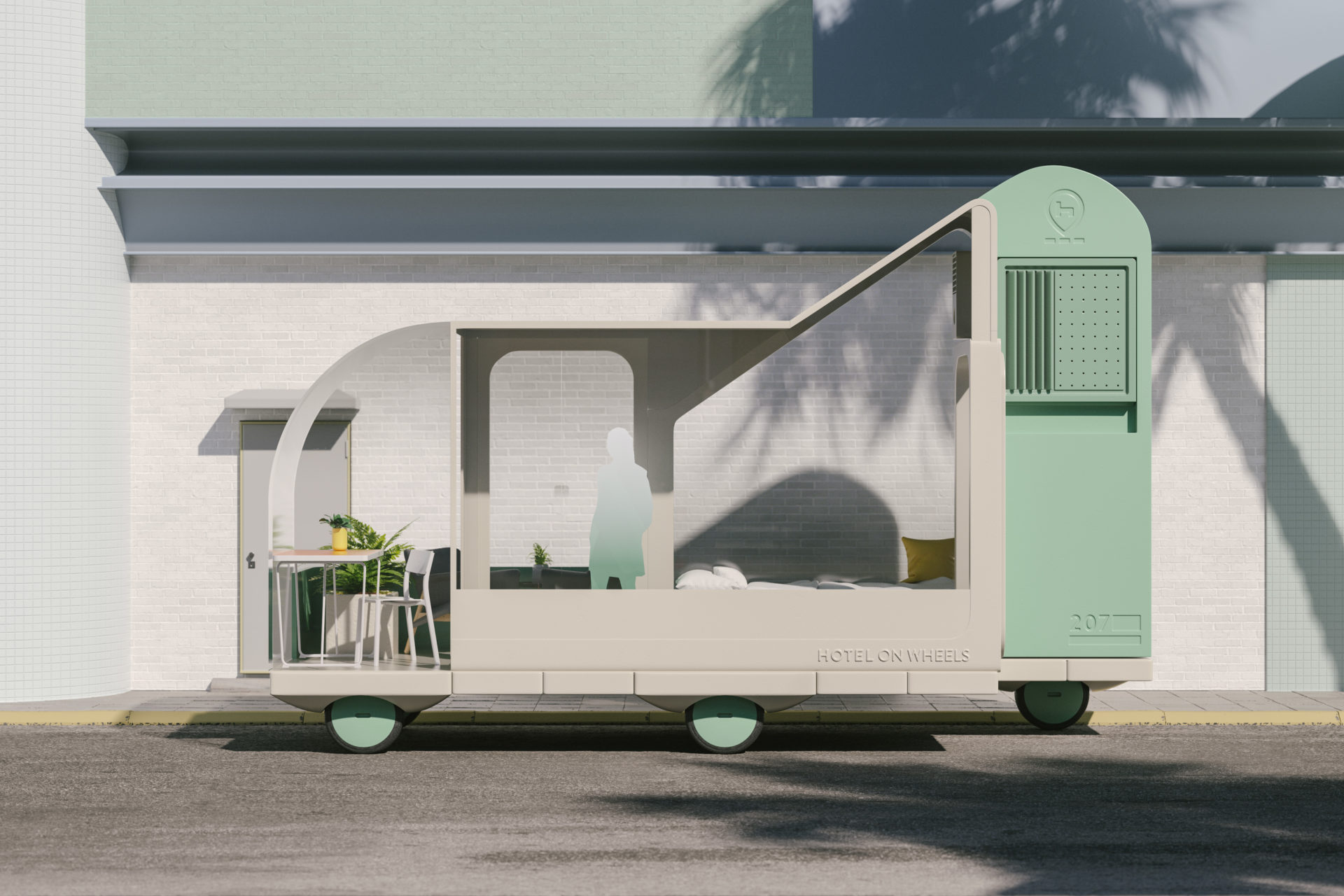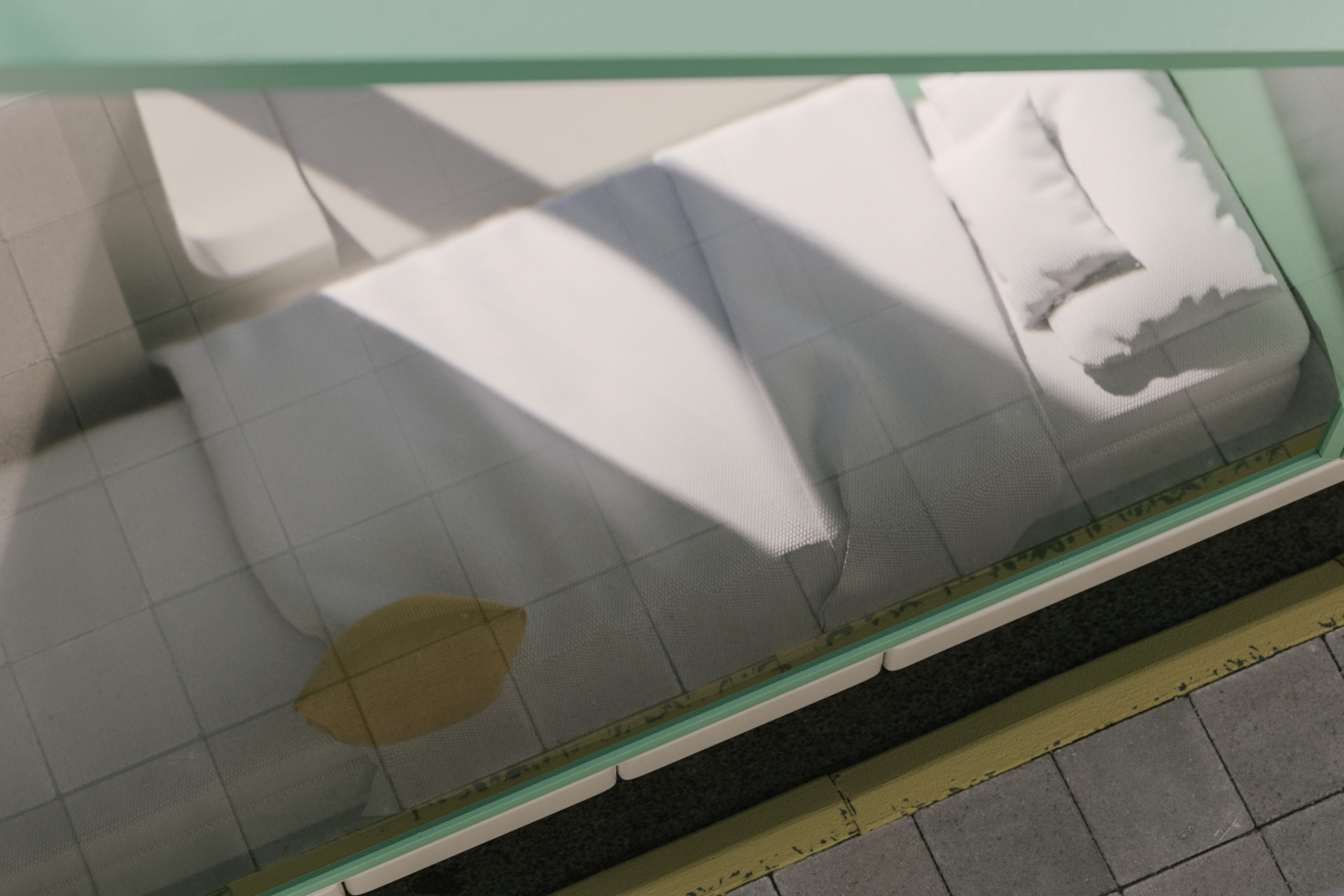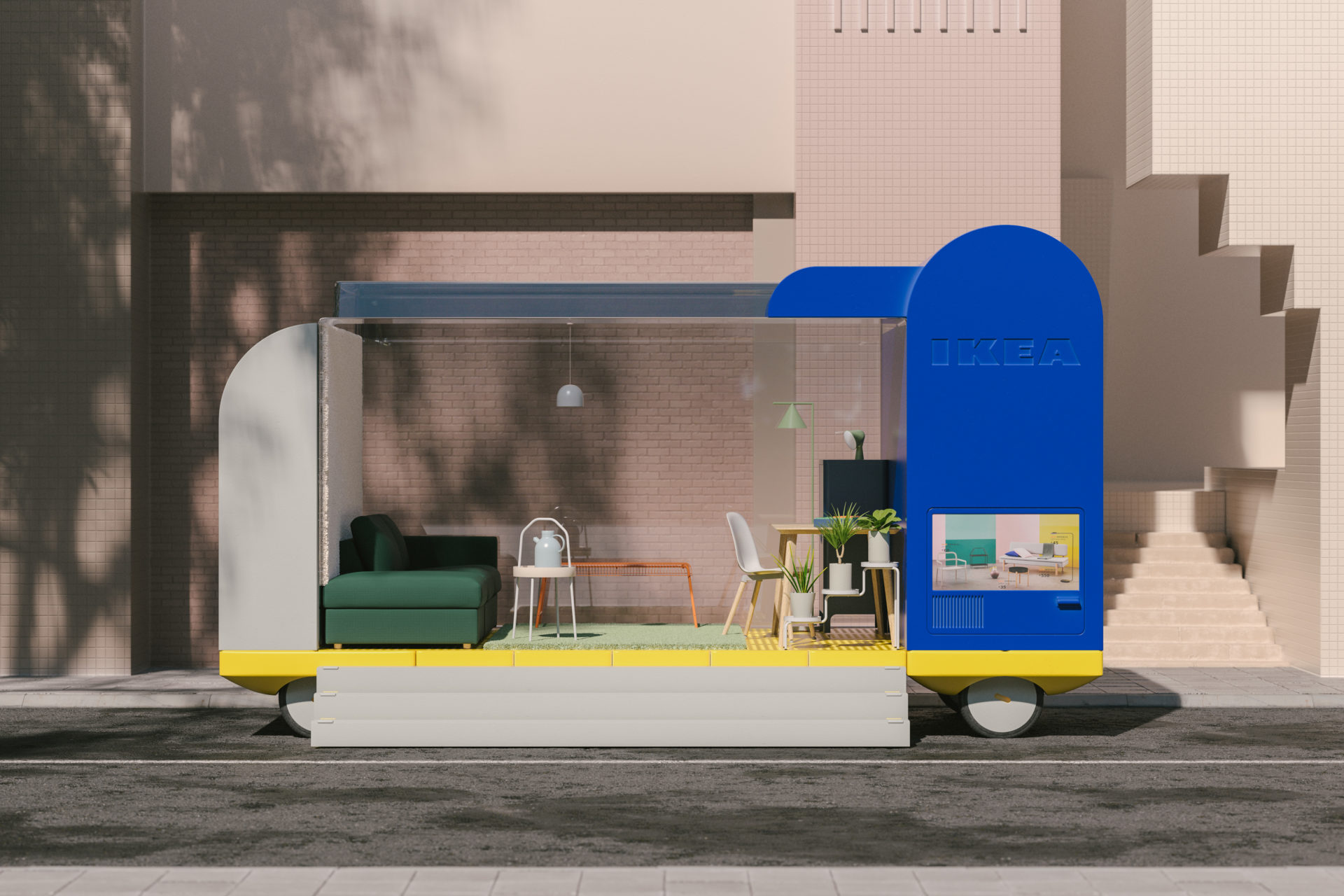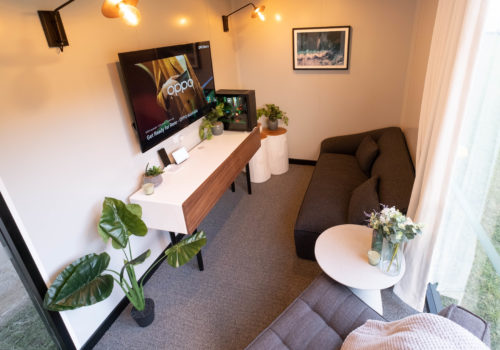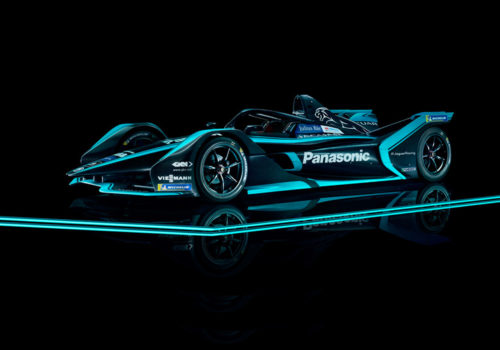The Space10 research and design centre, supported by Ikea, imagines seven experiences in vehicles with different forms and functions
Not just driverless cars. Driverless vans, mini-vans and campers, which will one day be able to travel from one location to another to offer services and “experiences”. These are the vehicles of the future imagined by Space10, the research and design centre based in Copenhagen and supported by Ikea.
These are not vehicles, but “Spaces on wheels”. Seven of them were developed for the Playful project in collaboration with the visual trend lab Foam. «We’ve designed seven autonomous vehicles as a visual exploration of how fully autonomous vehicles could one day enable a more fulfilling everyday life, reads the project website. Alongside the designs themselves, we’ve launched an app where you can experience booking a Space on Wheels in Augmented Reality» (the app can be downloaded directly from the website https://space10.io).
Supporting this initiative – that intends to go beyond the concept – is a study on the scenario of driverless cars (which may also be downloaded from the site), including the challenges, opportunities and examples of driverless initiatives that may literally revolutionize urban spaces as we know them today.
In February 2018, for example, the Department of Motor Vehicles in California approved the regulations that allow driverless vehicles to operate on the territory, though for the moment they must be guided from a distance by humans.
Analysts say that the driverless car sector could generate revenues of 450 billion dollars a year.
«Driverless vehicles can take various forms, including golf carts, wheelchairs, scooters, suitcases, shopping carts, trash cans and even boats. These technologies pave the way for a vast range of new products and applications, from mobility on demand, to shopping and the transportation of autonomous merchandise, and more efficient mobility in hospitals», underlines Daniela Rus, Director of the Computer Science and Artificial Intelligence Laboratory (Csail) at MIT in Boston, and head of MIT’s iSee project. The different “forms” of driverless vehicles are the core of “Spaces on Wheels”.
THE SEVEN SPACES ON WHEELS
OFFICE ON WHEELS
Office on Wheels helps people save part of the time they waste in city traffic: people driving to work spend an estimated 75 minutes a day commuting, 30 of which are lost to congestion. In 30 years that means two years stuck in traffic. The office on wheels helps people reclaim that time in the morning, because the office is already in place, or to come home earlier in the evening, exploiting the location for example for meetings with colleagues.
COFFEE ON THE GO
Coffee on the go is a mobile space that allows people to meet up for coffee when they need to keep moving on a busy day.
HEALTHCARE ON WHEELS
Transportation difficulties are one of the main barriers to health care, especially for low-income communities. This is known as ‘the last mile’ problem and Healthcare on Wheels solves it by bringing medical professionals to visit people in need, and not the other way around.
FARM ON WHEELS
Farm on Wheels brings food to people wherever they are, enabling local farmers to expand their businesses. The project is conceived for people in low-income communities, who find it difficult to get to a store or market that sells fresh food.
PLAY ON WHEELS
In Play on Wheels, the augmented reality “windows” let people try new games while they are traveling, or enjoy educational content about the surrounding area they are traveling through or staying in.
HOTEL ON WHEELS
An electric vehicle powered by clean energy with all the advantages of a traditional hotel room. It takes people to their destination and offers a comfortable venue for the night. All the while helping to reduce toxic emissions, considering that the project is conceived to reduce air travel to places that can be reached by land.
IL POP UP STORE
Shop on Wheels gets to people wherever they are, enabling them to try, purchase and shop around before buying online. This is the new “hybrid” between brick and mortar store and electronic showcase. Will Ikea be the first to experiment with this new formula?
© ALL RIGHTS RESERVED
translation by Olga Barmine



